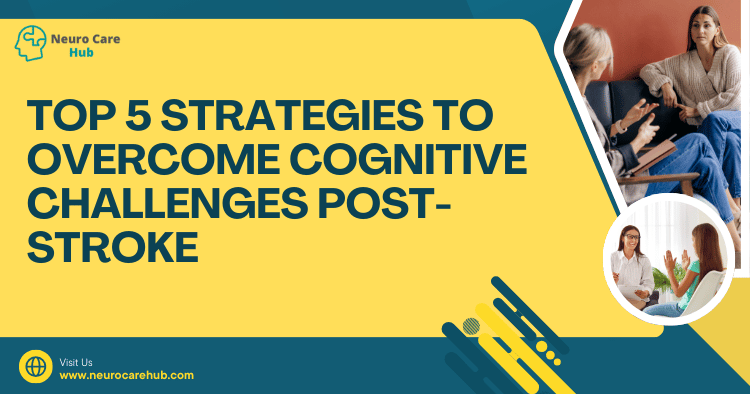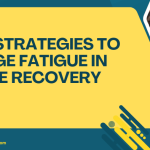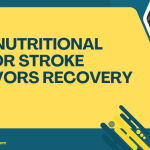Table of Contents
- Understanding Cognitive Challenges After a Stroke
- Strategy 1: Engage in Cognitive Rehabilitation
- Strategy 2: Utilize Technology for Cognitive Support
- Strategy 3: Establish a Routine
- Strategy 4: Seek Support from Family and Friends
- Strategy 5: Focus on Physical Health
- FAQs
Understanding Cognitive Challenges After a Stroke
Experiencing a stroke can be a life-altering event, not just physically but cognitively as well. Cognitive challenges post-stroke can vary widely from person to person. Some may struggle with memory, while others might find it difficult to concentrate, solve problems, or communicate effectively. According to the National Stroke Association, nearly two-thirds of stroke survivors experience cognitive impairment, making it a crucial area of focus for recovery.
Understanding these challenges is the first step toward overcoming them. Cognitive difficulties can manifest in several ways, including:
- Memory Loss: Trouble recalling names, recent events, or important dates.
- Attention Deficits: Difficulty focusing on tasks or conversations.
- Language Problems: Challenges in speaking, understanding, reading, or writing.
- Executive Functioning Issues: Trouble planning, organizing, or completing tasks.
By recognizing these challenges, you can better equip yourself with strategies to aid your recovery and regain independence.
Strategy 1: Engage in Cognitive Rehabilitation
Cognitive rehabilitation is a structured program designed to improve cognitive abilities after a stroke. It often involves working with a trained therapist who can tailor activities to your specific needs.
Activities to Consider:
- Memory Exercises: Such as recalling lists or playing memory games.
- Problem-Solving Tasks: Puzzles, mazes, or strategy games can help enhance your critical thinking skills.
- Language Therapy: Engaging in conversations or reading aloud can improve language skills.
Studies suggest that cognitive rehabilitation can result in significant improvements in cognitive skills, as noted by the American Speech-Language-Hearing Association. Make sure to consult with your healthcare provider to find a rehabilitation program that best suits your needs.
Strategy 2: Utilize Technology for Cognitive Support
In today’s digital age, technology can be an invaluable ally in the journey to recover cognitive functions. Various apps and devices are designed to help improve memory, organization, and communication skills.
Recommended Tools:
Tool Purpose Lumosity Brain training games Evernote Note-taking and organization Speechify Text-to-speech for reading support Headspace Mindfulness and focus improvement
These tools can provide interactive ways to practice cognitive skills and keep your mind engaged. Additionally, many devices come with reminders, making it easier to stick to your routines. For further insights into how technology can enhance neuro care, check out our article on Top 5 Essential Tools in Neuro Care You Should Know.
Strategy 3: Establish a Routine
Creating a daily routine can significantly enhance cognitive function. Having a structured schedule not only helps in memory retention but also reduces anxiety and confusion.
Tips for Setting Up a Routine:
- Morning Ritual: Start your day with a predictable routine, such as breakfast followed by light exercise.
- Time Blocks: Allocate specific times for activities, like reading or puzzles, to build familiarity.
- Checklists: Use checklists to keep track of daily tasks. This can help reinforce memory and provide a sense of accomplishment.
By establishing a routine, you provide your brain with a predictable environment, making it easier to navigate daily life. For more on integrating neuro care into daily routines, see Top 5 Ways to Integrate Neuro Care into Wellness Routine.
Strategy 4: Seek Support from Family and Friends
Recovery from a stroke can feel isolating, but you don’t have to go through it alone. Engaging with family and friends can provide emotional support and practical help with cognitive challenges.
Ways to Engage Your Support Network:
- Open Communication: Talk to loved ones about what you’re experiencing. This can foster understanding and patience.
- Involve Them in Activities: Invite family members to join you in cognitive exercises or games. It makes the process more enjoyable!
- Support Groups: Consider joining a stroke support group. Sharing experiences with others can provide comfort and ideas for coping strategies.
Remember, the journey to recovery is often a team effort, and your loved ones can contribute positively to your progress. For more information on the role of family in neuro care, check out our article on Top 5 Ways Family Support Enhances Neuro Recovery.
Strategy 5: Focus on Physical Health
Physical health and cognitive health are closely intertwined. Engaging in regular physical activity can enhance blood flow to the brain, which is crucial for cognitive recovery.
Recommended Activities:
- Walking: Simple yet effective, walking can boost mood and improve circulation.
- Yoga: This practice enhances flexibility and reduces stress, benefiting both body and mind.
- Strength Training: Light resistance training can improve overall physical function and cognitive performance.
Also, pay attention to your diet. Consuming a balanced diet rich in antioxidants, omega-3 fatty acids, and vitamins can support brain health. Foods like fatty fish, berries, nuts, and leafy greens are excellent choices. For dietary tips, refer to our article on Top 5 Diet Changes to Manage Neurological Disorders.
FAQs
What are common cognitive challenges after a stroke?
Common cognitive challenges include memory loss, attention deficits, language problems, and issues with executive functioning.
How long does cognitive recovery take after a stroke?
Cognitive recovery varies widely among individuals. Some may see improvements within months, while others may require years of rehabilitation.
Can cognitive challenges after a stroke improve?
Yes, with the right strategies and support, many individuals experience significant improvements in cognitive abilities.
Should I consult a professional for cognitive challenges?
Absolutely! Working with healthcare professionals, such as neurologists or occupational therapists, can provide tailored strategies for recovery.
Recovering from a stroke can be incredibly challenging, but with the right strategies and support, you can overcome cognitive obstacles. Remember, you are not alone on this journey, and taking these proactive steps can lead to a brighter future. For more information, check out the American Stroke Association to find resources that can help you on your path to recovery.






